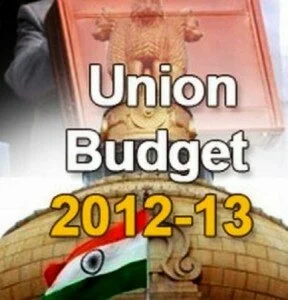 Bringing “Aam Admi ka Budget”, Finance Minister Pranab Mukherjee on Friday proposed a big relief for small tax payers by raise the tax exemption limit to Rs2 lakh per annum from Rs1.80 lakh.
Bringing “Aam Admi ka Budget”, Finance Minister Pranab Mukherjee on Friday proposed a big relief for small tax payers by raise the tax exemption limit to Rs2 lakh per annum from Rs1.80 lakh.
Presenting his Budgetary report in Lok Sabha, Mukherjee said, “My proposals on direct taxes are estimated to result in a net revenue loss of Rs4,500 crore for the year.”
Something more is in Budget of 2012-13 as raise the limit to Rs10, 000 of interest income from tax along with tax rate.
Now on basis of Budget proposals, tax payers will have to pay 10% tax on income between Rs2 lakh and Rs5 lakh; 20% between Rs5 lakh and Rs10 lakh; and 30% for above Rs10 lakh.
Defining the gaining factor of saving account deductions, Mukherjee said, “This would help a large number of small tax payers with salary income of up to Rs5 lakh and interest from savings bank accounts up to Rs10, 000, as they would not be required to file income tax returns.”
In the Budget, the taxable limit for the senior citizens between the age line of 60 and 80 will be Rs2.50 lakh; 10% tax on income between Rs2.5-5 lakh, 20% between Rs5-10 lakh and 30% above Rs10 lakh.
Mukherjee’s Budget proposals follow the enactment of the Direct Taxes Code (DTC) as per that the Standing Committee of Parliament had suggested raising the tax exemption limit to Rs3 lakh.
No doubt, Mukherjee’s “Aam Admi Ka Budeget” deals with have more space for a small tax payers but nothing for Business and industrialists as disappoint the India Inc.
Threatening to slope down economy by Budget 2012-13 that would be inflationary, the entire industry is saying, “The Budget is a missed opportunity.”
Moreover there are mixed reaction for Budget 2012-13, one side Industrialists complained to have no attention over fiscal deficit while other side said they were expecting the exemption limit to be 2.5 lakh per annum.
One disappointed source said, it is not as per expecting proposals and not going to stimulate growth in the economy. At the period while demand in market decline, its proposal to levy additional indirect taxes of Rs 45,940 crore for 2012-13 would have cascading impact on inflation and consumer demand.